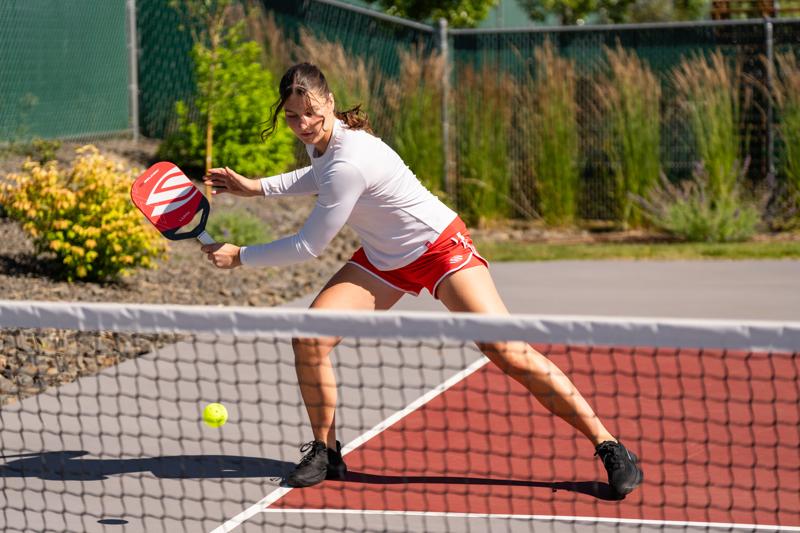Pickleball players and spectators alike have a natural instinct to share their opinions on every line call they see, or think they see. But there are rules in pickleball as to whose job it is to officially call lines, and there are very important reasons for this.
Calling lines in pickleball
In nearly all levels of pickleball, line calling is solely the responsibility of the receiving team — meaning a team or player will always be responsible for calling the lines on their side of the net.
Learn more about HOW to call lines in pickleball
Because most all recreational pickleball games, as well as a large number of competitive games, do not use referees, line calls rules are mainly by honor system. Players and spectators are expected to make ethical calls every time, and if there is any question on a line call, they should always give the benefit of the doubt to the non-receiving team.
(This rule is for “in” or “out” line calls only, and does not include short serves, service foot faults, and non-volley zone faults.)
There are a few rules when it comes to calling lines on your side of the net:
- Any ball that cannot be called “out” will be considered “in.” (Rule 6.C.3.)
- A player cannot claim a replay because the ball was not seen or there is uncertainty. (Rule 6.C.3.)
- Players shall not call a ball “out” unless they can clearly see a space between the line and the ball as it hits the ground. (Rule 6.C.6.)
- In doubles play, if one player calls the ball “out” and the partner calls it “in,” then doubt exists and the team’s call will be “in.” (Rule 6.C.8.)
- Players may overrule a partner’s line call, their own line call, an officiating team’s line call, or an “in” ruling to their own disadvantage. (Rule 6.C.11.)
Read the full rule: 2025 USA Pickleball rules - Section 6: Line call rules
Who cannot call pickleball lines
While most recreational pickleball players understand the rules of line calls on their own side of the net, the confusion comes when they think they see a line call — but it’s not their call to make. So who is not allowed to make a line call in pickleball:
- The non-receiving team.
- Spectators.
Why the non-receiving team cannot call lines
The reason line calls are the responsibility of the receiving team has to do with simple geometry: They are simply closer to the ball and the lines.
If you are on the opposite side of the net, you are likely at least seven feet away from any call, which causes angles to look different than what they actually are. You may think you see an “in” or “out” ball, when in reality you could be wrong by multiple inches, or feet. Constantly trying to call lines on the opposite side of the net makes you look like you don’t know the rules and don’t respect the game of pickleball.
The two exceptions: When opponents can call lines:
The non-receiving teams can call lines in two situations only:
- A player/team [receiving team] may ask the opponent’s opinion to make the line call on the player’s end of the court. If requested and the opponent makes a clear “in” or “out” call, it must be accepted. If the opponents cannot make a clear “in” or “out” call, then the ball is ruled as being “in” on the receiving team. The moment the receiving player/team asks for the opponent's opinion, they lose their right to make any subsequent "in" or "out" call for that rally. (Rule 6.C.5.)
- Players may overrule a partner’s line call, their own line call, an officiating team’s line call, or an “in” ruling to their own disadvantage. (Rule 6.C.11.)
Why spectators cannot call lines
For the same reason that the non-receiving team cannot call lines, spectators cannot call lines: They may not be in the correct position to see any call correctly.
However, unlike opponents, players are not even allowed to ask spectators if they saw a call. (Rule 6.C.4.)
Official pickleball rules for calling lines
The more you progress in pickleball, the more players will understand the official line calling rules and why they are the way they are.
You should not be interjecting with your thoughts about whether the ball was “in” or “out” on the other side of the court, and you should also not be asking any spectators for their opinions.

